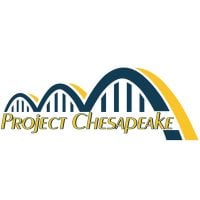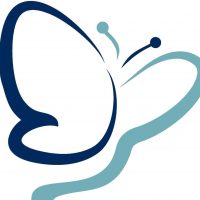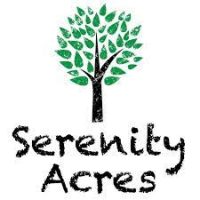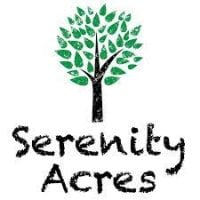Project Chesapeake - Annapolis
Drug Rehab Center in Annapolis, Maryland
Project Chesapeake - Annapolis is a mental health and addiction treatment center in Maryland that provides comprehensive services, including individual and group therapy, family counseling, outpatient counseling, and medication-assisted treatment, with personalized care plans and evidence-based practices.
About This Annapolis, MD Facility
Project Chesapeake - Annapolis, located in Annapolis, Maryland, is an integrated mental health and addiction treatment center providing comprehensive services for individuals and families. Founded in 2011, their mission is to reduce the negative impact of addiction on our community by providing compassionate, evidenced-based care. They provide a full range of services in the areas of individual and group therapy, family counseling, outpatient counseling, and medication assisted treatment.
Project Chesapeake - Annapolis provides personalized care plans which focus on addressing the individual as a whole, not just their addiction. They incorporate evidence-based practices such as cognitive behavioral therapy, dialectical behavior therapy, mindfulness-based approaches and trauma-informed care. Their team of addiction specialists provides education and guidance to their clients, their families, the legal system, and other members of the community.
Project Chesapeake - Annapolis is accredited by The Joint Commission, the leading accrediting organization in the United States for delivering quality health care. They also hold a license from the Maryland Department of Health and Mental Hygiene and are active members of the National Association of Addiction Treatment Providers. In addition, Project Chesapeake - Annapolis has received awards for their commitment to delivering quality care.
Genders
Ages
Modality
Additional
Accreditations

CARF
The Commission on Accreditation of Rehabilitation Facilities (CARF) is a non-profit organization that specifically accredits rehab organizations. Founded in 1966, CARF's, mission is to help service providers like rehab facilities maintain high standards of care.
Conditions and Issues Treated
Rehab centers exist in Annapolis, MD to help individuals bounce back from substance abuse, which is an umbrella term for drug and alcohol addiction. Drug addiction refers to the use of illegal drugs and improper use of prescription drugs. Centers like Project Chesapeake - Annapolis provide individuals a chance to access individual and group therapy that can be monumental for recovery.
Substance abuse includes all problems that stem out from using various psychoactive substances. It is also a diagnostic term used by Diagnostic and Statistical Manual of Mental Disorders (DSM-IV) to define the mental and physical impairment or distress caused by misuse and overuse of certain substances in a period of 12 months.
Opioid addiction involves addiction to legal or illegal opioids. It may happen very quickly with any opioid use. Sometimes within a matter of days. Opioid addiction is a known as a high-risk factor for future heroin addiction.
Opioid withdrawal can be extremely uncomfortable and lead the user to continue to use even if they want to quit. Stopping using an opioid requires careful medical observation. Sometimes the withdrawal can persist for many weeks, which can put the user at a high risk for relapse.
It is recommended to receive inpatient treatment and a medically supervised detox like those offered at Project Chesapeake - Annapolis in Annapolis, MD, MD, to manage the withdrawal process while learning lasting tools to maintain recovery. In some circumstances medications can be used to manage opioid addiction.
People with dual diagnosis have coexisting addiction and a mental disorder. 9.2 million US adults had a co-occurring disorder in 2018, so not just limited to Maryland residents. Best treatment combines medication, psychotherapy (talk therapy), support group, and inpatient rehabilitation. Sometimes, complementary therapies – yoga, massage, and acupuncture – may also be used.
Levels of Care Offered
This center offers a variety of custom treatment tailored to individual recovery. Currently available are Aftercare Support, Drug Rehab, Dual-Diagnosis, Intensive Outpatient, Outpatient, with additional therapies available as listed below.
Intensive outpatient programs mostly conduct meetings on weekdays. Group therapy is the main element in most intensive outpatient programs. Most IOPs last for about 90 days and include drug use monitoring and testing. A Maryland IOP, like what’s offerd at Project Chesapeake - Annapolis, take much more time than a standard outpatient program. Some programs offer other services as well, such as employment assistance and medication management.
Outpatient treatment can be considered the lowest intensity level of addiction treatment in Annapolis, MD. It is ideal for early phase addiction or lower intensity addictions. Project Chesapeake - Annapolis peer group support, 12-step programs, and individual counseling may still be involved.
After treatment, addiction treatment can be frightening for newly sober people. Aftercare support provided by Project Chesapeake - Annapolis is designed to give resources and help on a continued basis. It can involve finding housing in and around Maryland, setting up 12-step meeting groups, continued medical monitoring, and counseling.
Project Chesapeake - Annapolis‘s Therapies & Programs
Individual therapy aims to identify the core issues that would have led the patient to substance abuse and address the root cause effectively. Patients find the therapist as a person who they can trust. It helps them to open up and discuss personal and sensitive issues, which they may not be comfortable discussing in a group.
Couples therapy is an approach wherein the patients and their partners are engaged together as a part of the treatment process. When a person becomes a victim of substance abuse, it affects the patient and the people around him, particularly his partner. Their relationship can become strained due to lack of communication, financial issues, loss of trust, lack of intimacy, and physical abuse in more severe cases.
Couples therapy addresses these issues and tries to rebuild the trust between the partners. The partner’s involvement in the process will result in greater chances of treatment success and sustained recovery.
Family therapy is a set of therapeutic approaches that assumes that the entire family is a system. It utilizes the strengths and resources of the family to help the patient refrain from resorting to substance abuse. It helps to repair relationships and improve communication between family members.
Group therapy happens at Project Chesapeake - Annapolis in a controlled group environment, as opposed to a one-on-one setting. It supports Annapolis, MD patients’ recovery by offering a sense of comfort and letting them know that they are not alone. Through shared conversations, patients also learn to develop faith and understanding and gain insight on their addictions.
Unresolved trauma is often a key reason why many patients resorted to substance abuse. Trauma therapy refers to treatment wherein specialist therapists help the patients to resolve the trauma that led the patients to substance abuse. The trauma could be physical abuse, sexual abuse, war, natural disasters, divorce, accident, loss of a loved one, etc. Thinking of these traumatic events causes emotional disturbances like anxiety, depression and results in addiction. If trauma is the primary cause of substance abuse, then both issues must be addressed. Otherwise, there is a risk of relapse. Trauma therapy also improves the cognitive functions and provides long term benefits.
Dialectical Behavior Therapy (DBT) is an improved version of Cognitive Behavioral Therapy (CBT). DBT is a treatment of choice for people suffering from self-harming behaviors characterized by cutting and suicidal thoughts or inclinations.
This treatment is developed to help individuals recognize their thought patterns, behaviors, and feelings. It has demonstrated its effectiveness for people that are finding it difficult to control their emotions and urges. Conditions such as obsessive-compulsive disorder and borderline personality disorder also benefit from DBT as it imparts individuals stress-management techniques and enhanced self-esteem so they can sustain their sobriety by reducing the impact of triggers and out-of-control emotions.
Cognitive behavioral therapy (CBT) is a way of addressing concerns through talking. It can be used in individual counseling sessions. Talking through issues with professionals at Project Chesapeake - Annapolis can identify sources of discomfort or unhealthy thoughts. It is a way of learning about yourself and your individual perceptions. CBT is a healthy way of addressing some behaviors which may be bringing unintended consequences in your life.
Contingency management is a way to help motivate someone to remain substance free. It is a process of rewarding positive choices and good outcomes. As humans we are wired to recreate experiences that lead to positive feelings. Through this method incentives are used for completing positive steps towards a sober life. This may be a reward for attending meetings, remaining sober or for employment goals.
Payment Options Accepted
For specific insurance or payment methods please contact us.
Is your insurance accepted?
Ask an expert, call (888) 674-0062
Additional Details
Specifics, location, and helpful extra information.
Annapolis, Maryland 21401 Phone Number(443) 214-5097 Meta DetailsUpdated November 25, 2023
Staff Verified
What else do people call Project Chesapeake – Annapolis?
People have occasionally also searched for “Project Chesapeake in Maryland”
Patient Reviews
There are no reviews yet. Be the first one to write one.
Annapolis, Maryland Addiction Information
For the past decade, Maryland's rate of drug use and abuse has significantly increased. The overdose rate is currently higher than the national average. This epidemic is due to the many industries where manual labor is required. As soon as prescription opioids were more readily accessible a large part of manual workers started using–and eventually abusing–the painkillers.
4,000 people are living in Annapolis, Maryland who struggle with drug or alcohol addiction. About 36% of all drug-related arrests in Annapolis involve prescription drugs. 45% of drug addicts began using them before the age of 18. Numerous drug dealers are operating in the city and drugs can be purchased easily on the street. Despite these challenges, help is available. Drug treatment centers in Annapolis can provide the necessary support.
Treatment in Nearby Cities
- Oxon Hill, MD (27.3 mi.)
- Federalsburg, MD (45.9 mi.)
- Bladensburg, MD (21.5 mi.)
- Salisbury, MD (66.6 mi.)
- Dundalk, MD (18.4 mi.)
Centers near Project Chesapeake - Annapolis
The facility name, logo and brand are the property and registered trademarks of Project Chesapeake - Annapolis, and are being used for identification and informational purposes only. Use of these names, logos and brands shall not imply endorsement. RehabNow.org is not affiliated with or sponsored by Project Chesapeake - Annapolis.










